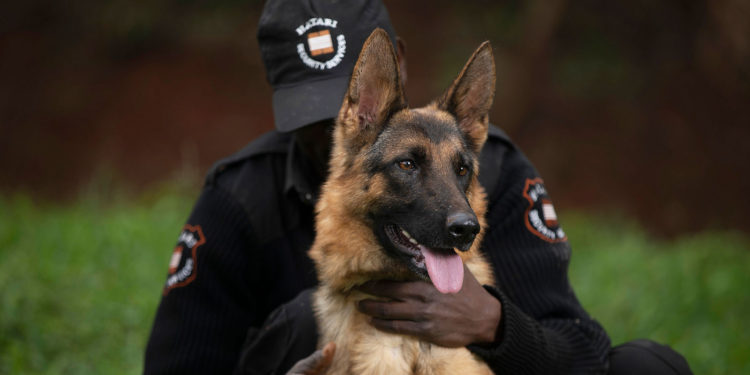Private Security Regulatory Authority (PSRA) CEO, Fazul Mahamed, has unveiled new guidelines for the use of animals, particularly dogs, for security purposes. These guidelines, detailed in the Private Security (Use of Animals in Private Security Services) Regulations 2024, are designed to safeguard both animal welfare and human safety.
As per the regulations, private security firms are required to keep detailed records of animals used in security operations, including their name, breed, date of birth, identifying features, and characteristics. Firms must also ensure that the animals receive proper training and certification for security tasks.
Similarly, the security personnel responsible for handling these animals must also undergo suitable training and certification.
Private security service providers have the mandate to use the animals to detect and control crowds, patrol and pursue protection, and patrol demonstration parades. Service providers, however, cannot use an animal if it has been trained to kill or seriously injure people or other animals or if it has been diagnosed with an illness of any kind.
Each animal used must be uniquely identified with an embedded ear tag and should be accompanied by a trained handler who has control over the animal. In the case of dogs, they must be kept on a leash at all times during ground patrol.
Additionally, the custodian of an animal is required to treat it with respect and dignity and will be held accountable for an act done by the animal. All custodians should also provide veterinary care to the animal.
The custodian should also not subject the animal to any form of fear, pain, stress or suffering. Each animal should be provided with an environment that is appropriate depending on the species.
Furthermore, the animals should be transported in a manner which does not cause injury, pain or anxiety. They should be transported in a vehicle that has a separate cage for each of them as approved by a certified veterinary surgeon.
“A person who contravenes this regulation commits an offence and is liable to conviction to a fine not exceeding KES 20,000 or imprisonment for a term not exceeding three months or both,” reads part of the regulations.















